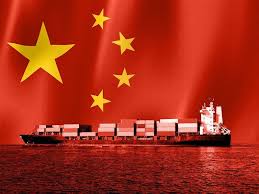Companies make last-ditch appeal to Trump: Tariffs are a bad idea

Businesses hope President Trump will hear their message this week: Tariffs are just bad economics.
Executives from the retail, technology, steel and agriculture industries will convene in Washington starting on Tuesday to air their concerns about the administration’s proposed duties on 1,300 exports to punish China for intellectual property theft.
American business generally supports the Trump administration’s efforts to level the playing field with China. But companies fear that the tariffs will come at a big economic cost — raising prices on televisions, dishwashers, printers and other items for consumers.
The tariffs would apply to $ 50 billion worth of Chinese exports, a lengthy list that covers everything from airplane parts to syringes.
On Monday, the National Federation of Retailers, one of the largest Washington trade groups, aired a commercial on “Fox & Friends,” a morning news show the president is known to watch, in hopes of persuading him not to press ahead with the tariffs.
In the commercial, Ben Stein reprises his role as the droning economics teacher from the 1980s John Hughes film “Ferris Bueller’s Day Off.”
“Tariffs raise taxes on hard working Americans,” Stein says in the ad. “It’s not complicated. Tariffs are B-A-D economics. Bad economics. BAAADD.”
Related: Trump thows ZTE curveball as big week for US-China trade begins
The commercial will also air this week during ABC’s “Roseanne” and NBC’s “Saturday Night Live.”
“Tariffs are the wrong approach and will only drive up prices for American consumers,” said Matthew Shay, president and CEO of the retail trade group, which represents retailers like Macy’s, BJ Wholesale Club and Sam’s Club. “Tariffs are bad economics and always lead to unintended consequences.”
It’s a critical time for US-China trade relations. Washington and Beijing are in talks to avoid a trade dispute, but “the gap remains wide,” Commerce Secretary Wilbur Ross said Monday.
“It’s difficult to handicap the outcome,” Ross said at an event at the National Press Club. “My hope is the strong personal relationship between President Trump and President Xi [Jinping] will facilitate an agreement.”
Related: The compromises that companies make to do business in China
Chinese Vice Premier Liu He, the country’s top economic official, is expected to visit Washington as early as this week to continue discussions with top administration officials.
More than 120 companies and business groups are scheduled to testify at this week’s hearing. US trade officials decided last week to extend the initial one-day hearing to three days to accommodate anyone who wanted to testify.
US Steel(X), General Electric (GE), Best Buy (BBY), Vista Outdoor (VSTO) and the National Association of Manufacturers are among the companies and groups that have asked to speak about the proposed tariffs. Toshiba and the American Soybean Association are among the others that have registered objections.
The government could impose the tariffs as early as May 22. The administration is considering further tariffs on an additional $ 100 billion worth of goods from Beijing. China has said it would retaliate by imposing levies of equal value on US imports.
Related: How tariffs on China could make your life more expensive
Steven Mensch, senior vice president of global operations for Toshiba, said in a comment letter to the US government that the tariffs would undermine the software provider’s ability to compete effectively against foreign companies like Germany’s Wincor Nixdorf, its main overseas competitor.
The Consumer Technology Association, a trade group that represents 2,200 manufacturers, developers, and retailers in the consumer technology industry, warned that the tariffs will increase the cost of Chinese TVs by 23% and all TVs by 4%.
If China hits back with tariffs and the US proceeds with more tariffs of its own, more than 450,000 US jobs could be at risk, according to a study by the technology association and the National Federation of Retailers.
Ross tried to assuage those fears. He argued Monday that a tit-for-tat trade war with China would have only a small effect on the US economy.
Linda Dempsey, vice president of international economic affairs for the National Association of Manufacturers, said the most effective path forward is modern bilateral trade agreement that eliminates Chinese barriers and creates a mechanism to enforce a deal.
“This approach represents the best way to treat the disease, not just the symptoms,” Dempsey said in prepared testimony.
US Steel’s general manager Robert Kopf, who has also asked to testify, is expected to press the administration to address gaps in proposed steel and aluminum tariffs to more effectively cover tin- and chromium-coated steel sheet products, according to a letter from the company.
